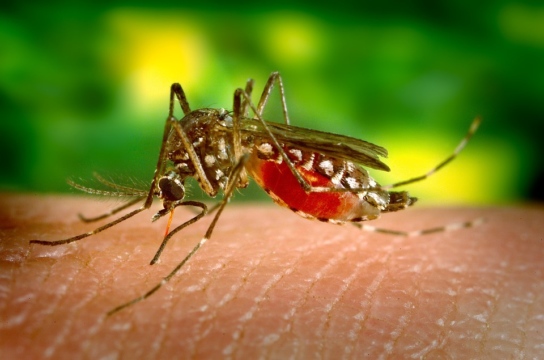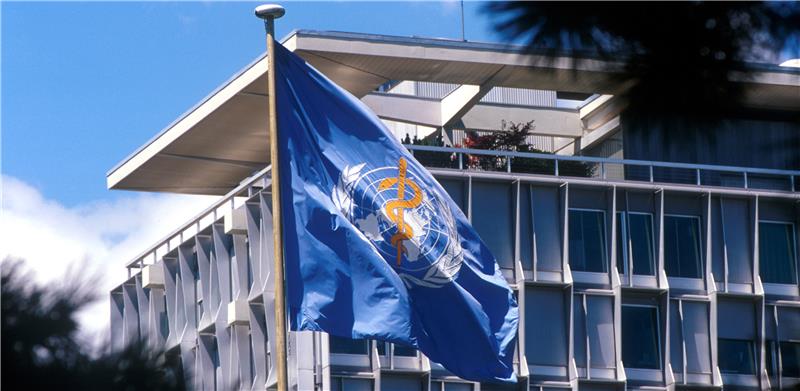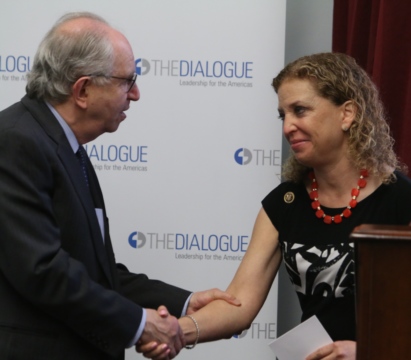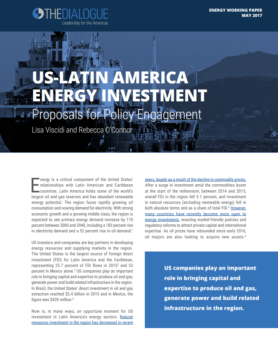
On the Zika Crisis
Government agencies and international organizations race to find a solution given recent information about the link between Zika and neurological disorders.
A Daily Publication of The Dialogue
The Trump administration has notified the U.S. Congress and the United Nations that the United States is formally withdrawing from the World Health Organization, citing its handling of the coronavirus pandemic. The move, which has drawn criticism from legislators, medical associations and U.S. allies, goes into effect next July. Does the WHO have “a long history of corruption and politicization” as U.S. Secretary Mike Pompeo said in announcing the withdrawal, and will the move change the way the organization operates? What are the most significant implications of the withdrawal both for the United States and for future efforts in fighting diseases and improving global health outcomes? In what ways will Latin American countries and the Pan American Health Organization, the WHO’s regional office, be affected by the decision?
Andrew Rudman, managing director at Monarch Global Strategies: “Based on the handling of the coronavirus pandemic, perhaps the WHO should have expelled the United States? Sarcasm aside, the U.S. decision is shortsighted, politically motivated and petty. Substantive benefits from the decision are unclear while the negatives are easy to identify. Many analysts point to the loss of important collaboration between the WHO and CDC, including data sharing to prevent pandemics. Consider the outcome if the United States were forced to wait for a future coronavirus to infect American citizens before the CDC had access to virus samples or other evidence and experience needed to develop a response. U.S. innovative industries may be exposed to potentially serious, if less dramatic, consequences as well. The WHO and PAHO have at times issued statements, made recommendations or advocated for policies regarding intellectual property and price controls that are inimical to the interests of these industries. Without the moderating impact of the U.S. delegation during, for instance, the World Health Assembly, these outcomes will almost certainly occur more frequently. In this hemisphere, most governments hold PAHO in high regard. Many rely on its financing support funds to acquire essential medicines. Others depend on its regulatory policy guidance when they lack the capacity to develop their own regulations. Reducing PAHO’s budget may well reduce the agency’s ability to engage in areas generally consistent with U.S. national interests while eliminating any U.S. influence over decisions—good or bad. No doubt, the WHO and PAHO would benefit from thoughtful reform. Regrettably, rather than working to improve the WHO’s pandemic response capability (among other potential reforms), the Trump administration has chosen to undermine global collaboration to distract from national mismanagement.”
Ross Marchand, vice president for policy at the Taxpayers Protection Alliance: “U.S. Secretary of State Mike Pompeo was absolutely correct in his declaration that the World Health Organization (WHO) has ‘a long history of corruption and politicization.’ This politicization has become hard to deny in recent months as the WHO continues to refuse Taiwan a seat at the table at the agency’s emergency meetings. One might think that the WHO could learn a thing or two from Taiwan, which has seen just seven Covid-19-related deaths since the start of the pandemic. But, sadly, the agency has prioritized currying favor with the Chinese government over the impartial global pursuit of public health. WHO Director General Tedros Adhanom Ghebreyesus has praised Chinese President Xi Jinping for his political ‘leadership,’ despite the regime covering up the pandemic and punishing doctors who sounded the alarm. Withdrawing from this clearly lopsided organization sends a powerful message that such antics will not be tolerated. The Taxpayers Protection Alliance has suggested replacing WHO funding with direct funding for organizations doing pivotal public health work across the globe, such as Doctors Without Borders. The United States and its allies are in a unique position to cut out the corrupt middleman and directly fund promising health initiatives worldwide. In Latin America, this shift in public health funding will mean a critical realignment toward urgent priorities. Instead of misguided WHO-funded efforts to fight harm reduction products such as vapes, greater resources can be devoted toward fighting the coronavirus. Withdrawing from the WHO will be a boon for public health in Latin America and the entire world.”
Katherine Bliss, senior fellow at the CSIS Global Health Policy Center: “The Trump administration’s withdrawal from the WHO, and by extension, the Pan American Health Organization (PAHO), which has provided technical and policy guidance to health ministries in the region for more than 100 years, seems ill-advised. In the early 20th century, U.S. health officials helped establish the Pan American Sanitary Bureau, which became the WHO’s regional office after 1948. The Bureau’s first three leaders were U.S. public health physicians, and the U.S. government donated the land in Washington for the PAHO headquarters, which opened in 1965. A formal U.S. withdrawal from PAHO will stress an agency already facing budget deficits. In addition to funds transferred from the WHO, PAHO collects members’ dues directly, and several, including the United States, as well as Argentina, Brazil, Chile, Colombia, Mexico and Venezuela, have not fully paid their 2019 or 2020 assessments. The United States’ unpaid balance of $110 million represents 67 percent of the total in arrears. A U.S. withdrawal could also cancel long-standing voluntary contributions that support the hiring of technical personnel, such as immunization experts, at the country level. Even if it does withdraw from the WHO, the United States should find a way to maintain PAHO membership, pay its 2019 and 2020 assessments and contribute to a supplementary fund to provide members with critical supplies to address the coronavirus pandemic. With any return to normal tied to the effective distribution of a vaccine to prevent infection with the virus that causes Covid-19, scaling back U.S. support for regional public health collaborations now would be shortsighted.”
Carlos Espinal, director of the Global Health Consortium at the Robert Stempel College of Public Health & Social Work at Florida International University: “The WHO is responsible for coordinating international responses to public health issues, issuing specific guidelines for prevention, diagnosis, control and treatment of diseases, supported among others by U.S. scientists and government bodies. It’s the only agency that can declare a Public Health Emergency of International Concern (such as the 2009 H1N1 and the present Covid-19 pandemics)—the highest level of alert in global public health, which unlocks additional financial support. The WHO and its regional offices have played a very important role in improving global health conditions. Its objectives have always been aimed at promoting the principles of human rights, universality and equity, as well as the integral development of the population under the concept of One Health, an approach to designing and implementing partnership initiatives to develop programs, health policies, research and legislation. The United States has been an instrumental member of global expert committees that have collaborated in the identification and resolution of the most serious global and public health threats. U.S. scientists and the U.S. government’s support have been extremely relevant in the resolution of the H1N1 pandemic, in the Ebola outbreak in Africa and Covid-19. U.S. scientists and the CDC have always been involved in responding to a disease outbreak or pandemic situation by helping the WHO and countries in critical phases of any public health threat in the identification of the problem, surveillance, evaluation and implementation of control measures and impact evaluation. By withdrawing from the WHO, the United States will lose leadership, respect and trust with its international partners. The U.S. scientific community will forfeit its capacity to influence good practices in public health. Also, it will lose the access to the WHO Global Information System for sharing data and vaccine strains. It will also miss the chance to know since the very early stages the origin and place of potential pandemic pathogens and new health threats, making the world and the United States more vulnerable for severe outbreaks. This is not a question of money anymore; it’s about trust, honor, reputation and partnership.”
 The Latin America Advisor features Q&A from leaders in politics, economics, and finance every business day. It is available to members of the Dialogue’s Corporate Program and others by subscription.
The Latin America Advisor features Q&A from leaders in politics, economics, and finance every business day. It is available to members of the Dialogue’s Corporate Program and others by subscription.
Government agencies and international organizations race to find a solution given recent information about the link between Zika and neurological disorders.
Lawmakers join the Dialogue and the O’Neill Institute for National and Global Health in open discussion on the Zika virus as a global health crisis.
While the Trump administration’s “America first” policies are aimed primarily at giving higher priority to national security and economic growth for the United States, the White House’s approach will have impacts on energy relations with the rest of the hemisphere that should also be considered.
 U.S. Secretary of State Mike Pompeo earlier this month said the United States was withdrawing from the World Health Organization, whose headquarters in Geneva is pictured above. // File Photo: World Health Organization.
U.S. Secretary of State Mike Pompeo earlier this month said the United States was withdrawing from the World Health Organization, whose headquarters in Geneva is pictured above. // File Photo: World Health Organization.

